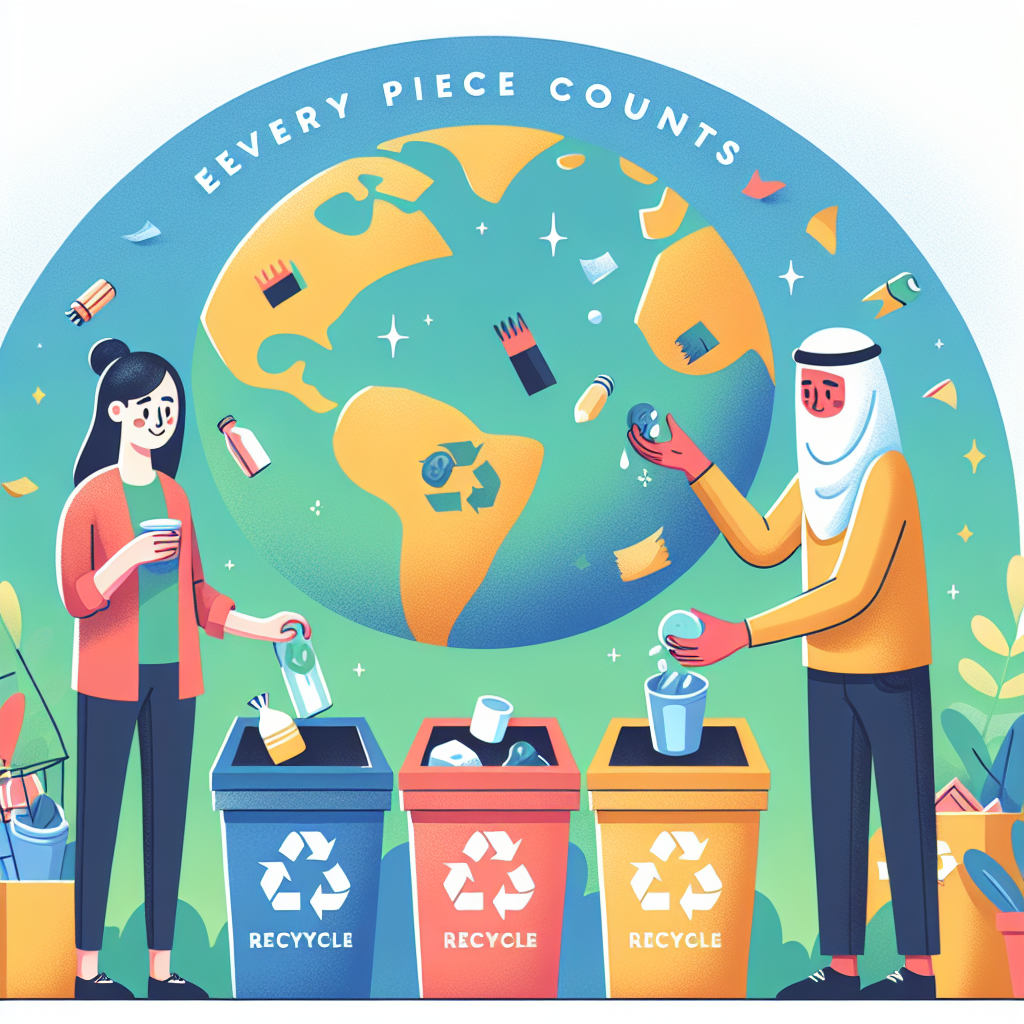In a world grappling with climate change and environmental degradation, the call for sustainable living has never been louder. Recycling, often seen as a collective effort, hinges on individual actions that can lead to significant positive outcomes. Understanding how small contributions can amplify the impact of recycling is key to fostering a culture of environmental stewardship.
The Ripple Effect of Individual Actions
Recycling often feels like a monumental task reserved for governments and large corporations. However, each person’s daily choices play an indispensable role. When individuals take the initiative to recycle, they contribute to a larger movement that helps divert waste from landfills, reduces pollution, and conserves resources.
-
Reducing Waste: According to the Environmental Protection Agency (EPA), recycling and composting prevented the release of 186 million metric tons of carbon dioxide equivalent into the air in 2018 alone. Each bottle or can we recycle may seem insignificant, but collectively, these actions lead to monumental reductions in greenhouse gas emissions.
-
Conserving Resources: The recycling process saves energy and reduces the need for raw materials. For example, recycling aluminum saves 95% of the energy required to make new aluminum from bauxite. When individuals make the effort to recycle, they contribute to a more sustainable resource cycle that lessens the strain on our planet.
-
Encouraging Responsible Production: When consumers actively participate in recycling, they send a strong message to manufacturers about their preferences. Companies that prioritize sustainable practices are more likely to thrive, ultimately fostering a market that values eco-friendly products.
Small Actions That Lead to Big Changes
Every effort counts, and there are countless ways individuals can incorporate recycling into their daily lives:
-
Educate Yourself and Others: Understanding what can and cannot be recycled is essential. Many people are unaware of recycling protocols, leading to contamination that impedes the recycling process. Sharing this knowledge within communities can have a cascading effect.
-
Start Small: If you’re new to recycling, begin with simple products, such as paper, cardboard, and common plastics. As you become more familiar with the recycling guidelines in your area, you can expand your efforts to include items like electronics and batteries.
-
Create a Recycling Station: Designate a specific area in your home for recyclables. Having a visible and organized recycling space encourages more consistent participation in recycling efforts.
-
Participate in Community Events: Join local clean-up events or organize recycling drives. These actions not only build community spirit but also raise awareness about the importance of recycling.
-
Support Sustainable Brands: Opt for products from companies that prioritize sustainable practices. Purchasing items with minimal or recyclable packaging supports businesses that align with your values.
The Role of Technology in Recycling
In today’s digital age, technology has transformed how we approach recycling. Apps for tracking recycling benefits, videos to educate the public, and platforms that encourage local recycling initiatives create a more informed community. Innovations like smart bins that can sort recyclables and track progress help streamline the process and engage more people in recycling efforts.
Conclusion: Every Piece Counts
The path to a more sustainable future is paved with small individual actions. In the context of recycling, every bottle, can, and piece of paper recycled contributes to a larger goal of protecting our planet. When people understand the power of their choices and the collective impact of these decisions, they become motivated to act. Together, our small actions spark a ripple effect that can lead to monumental environmental change.
By recognizing that every piece counts, we empower ourselves and inspire those around us. The journey towards sustainability may be long, but with each small action, we can create a big impact. It’s time to roll up our sleeves and embrace the power of recycling—because ultimately, every piece truly does count.




